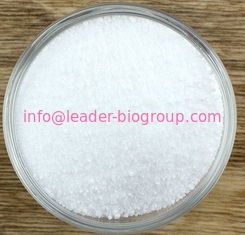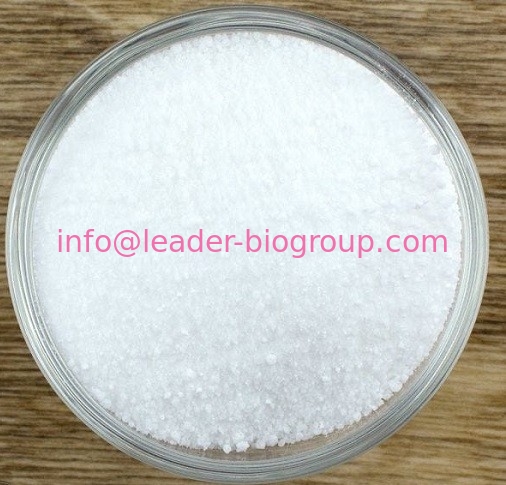| The most bitter compound in the world |
Denatonium benzoate is now known as the world's most bitter compound. If we set the bitter degree of quinine as datum 1, the degree of bitterness of the product would be 1000. A concentration of 10ppm solution is already too bitter to bear for most people. The vast majority of its applications are related to its bitter flavor. It is an inexpensive and efficient alternative to its counterparts such as strychnine, bitter lignin, quinine, wood song glycosides, saponins grapefruit.
Denatonium benzoate is commonly used as aversive agent to prevent people from eating other toxic but tasteless substance. For example, it has been added into industrial alcohol, ethylene glycol or methanol which has similar taste as ordinary wine, antifreeze, paint, toilet cleaners, animals disperse, liquid soaps and shampoos. Moreover, it has been also added into special nail polish agents, to avoid child’s bad habit of biting fingers, as well as being the repellent for expulsing large beasts. However, the effect of Long-term exposure to this substance on human health is still unclear. |
| Chemical structure |
Denatonium benzoate is a kind of quaternary ammonium salt formed by the combination of the quaternary ammonium cation and inert anion such as benzoic acid or saccharin anion. The structure of its cation form is similar to that of a local anesthetic lidocaine with the only difference being an additional benzyl functional group located on the nitrogen atom of the amino. |
| Uses |
Flavoring agent. |
| Chemical Properties |
white crystals |
| Chemical Properties |
Denatonium benzoate occurs as an odorless, very bitter tasting, white crystalline powder or granules. |
| Uses |
H1 antihistamine |
| Uses |
Pharmaceutic aid (alcohol denaturant; flavor). Added to toxic substances as a deterrent to accidental ingestion. Can replace brucine or quassin as denaturant for ethyl alcohol. |
| Production Methods |
Denatonium benzoate was first synthesized in the 1950s and is usually prepared by reacting denatonium chloride with benzyl benzoate. |
| Brand name |
Bitrex (Mac Farlan Smith, Scotland). |
| Pharmaceutical Applications |
Denatonium benzoate is among the most bitter of substances known and is detectable at concentrations of approximately 10 ppb. In pharmaceutical and other industrial applications it is added to some products as a deterrent to accidental ingestion. It is most commonly used at levels of 5–500 ppm. Denatonium benzoate may also be used to replace brucine or quassin as a denaturant for ethanol.
In pharmaceutical formulations, denatonium benzoate has been used as a flavoring agent in placebo tablets, and in a topical formulation it has been used in an anti-nailbiting preparation. |
| Safety |
Denatonium benzoate is generally regarded as a nonirritant and nonmutagenic substance.However,therehasbeenasinglereportof contact urticaria attributed to denatonium benzoate occurring in a 30-year-old man who developed asthma and pruritus after using an insecticidal spray denatured with denatonium benzoate.
LD50 (rabbit, oral): 0.508g/kg
LD50 (rat, oral): 0.584g/kg |
| storage |
Denatonium benzoate is stable up to 140°C and over a wide pH range. It should be stored in a well-closed container (such as polythene-lined steel) in a cool, dry place. Aqueous or alcoholic solutions retaintheir bitterness forseveral years evenwhenexposed to light. |
| Incompatibilities |
Denatonium benzoateis incompatible with strongoxidizing agents. |
| Regulatory Status |
Denatonium benzoate is used worldwide as a denaturant for alcohol. It is included in the FDA Inactive Ingredients Database (topical gel and solution). |

